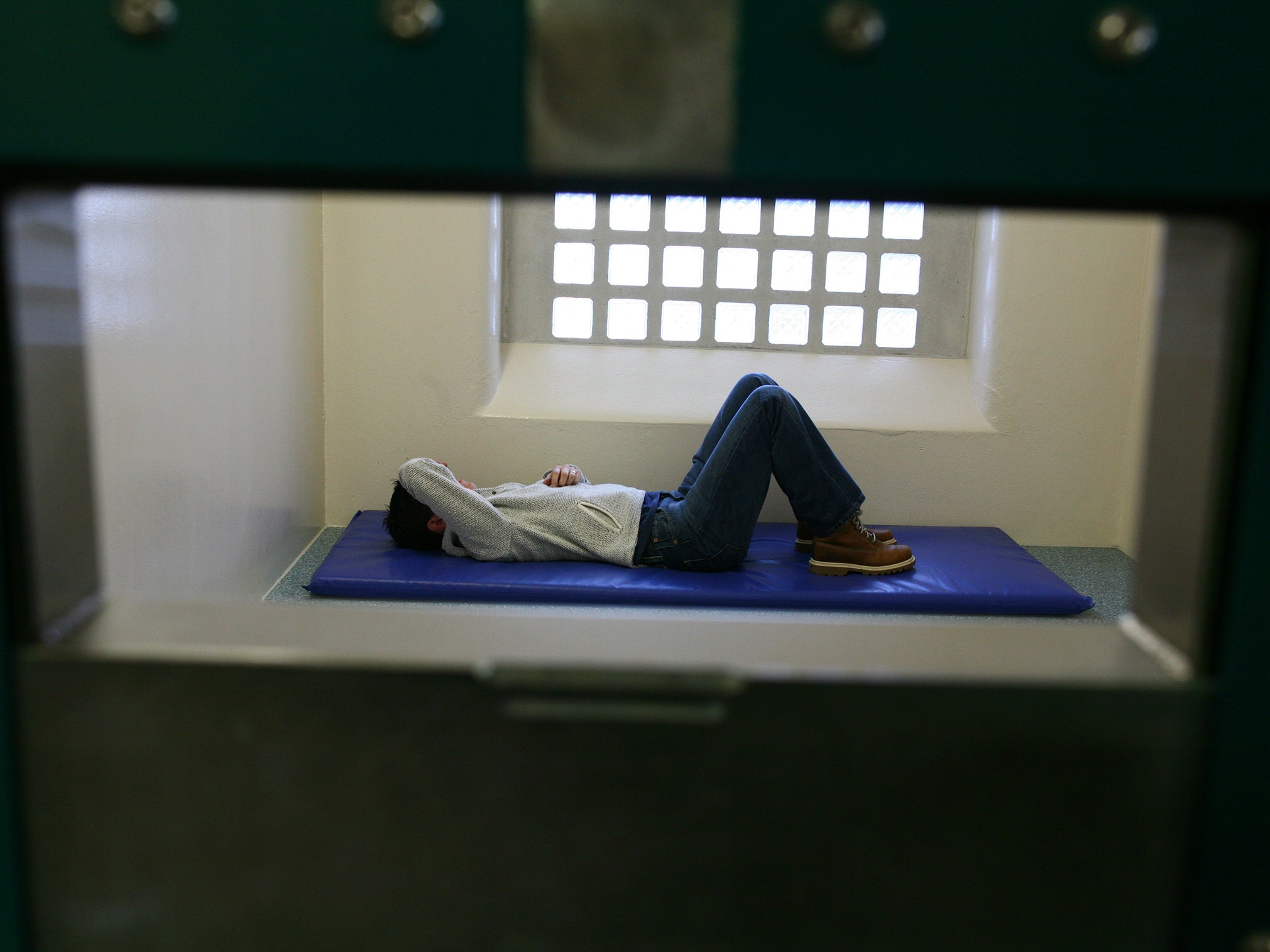Surge in children in custody needing medical treatment after self-harming, figures show
Campaigners raise alarm over ‘child protection scandal’

Your support helps us to tell the story
From reproductive rights to climate change to Big Tech, The Independent is on the ground when the story is developing. Whether it's investigating the financials of Elon Musk's pro-Trump PAC or producing our latest documentary, 'The A Word', which shines a light on the American women fighting for reproductive rights, we know how important it is to parse out the facts from the messaging.
At such a critical moment in US history, we need reporters on the ground. Your donation allows us to keep sending journalists to speak to both sides of the story.
The Independent is trusted by Americans across the entire political spectrum. And unlike many other quality news outlets, we choose not to lock Americans out of our reporting and analysis with paywalls. We believe quality journalism should be available to everyone, paid for by those who can afford it.
Your support makes all the difference.The number of children in custody requiring medical treatment after self-harming has surged despite a drop in the youth prison population, which campaigners have branded a “child protection scandal”.
A total of 660 young offenders – nearly two a day – needed to see a medical professional after harming themselves in the year to March 2019, accounting for more than a third (36 per cent) of all incidents, according to new figures published by the Ministry of Justice (MoJ).
This marks a 293 per cent increase on 2015, when a far lower proportion – 13 per cent – of all incidents required medical treatment, suggesting the nature of self-harm among youngsters in jail has become more severe.
The increase comes despite a considerable drop in the youth prison population over the same period, with the number of children in custody decreasing by 17 per cent over the last four years, from 1,002 to 832.
Self-harm in adult prisons has meanwhile soared to another annual record high, with 168 incidents recorded among adult inmates each day – amounting to seven every hour – more than double the number of self-harm incidents recorded in the same period in 2014 (24,748).
Assault incidents in both the child and adult prison estates decreased in the past year, by 5 per cent and 2 per cent respectively.
Peter Dawson, director of the Prison Reform Trust, welcomed the “small decrease” in the overall levels of assault, but added: “The hidden crisis revealed in these figures is the record levels of self-harm, which continue to rise unabated.
“A failure to ensure decent and humane conditions, as well as respond effectively to the large proportion of people in prison with serious mental health problems, is being paid for in human misery and distress. Sending more people to prison longer will make matters worse.”
Carolyne Willow, director of charity Article 39, said the rise in self-harm and restraint incidents among children in custody amounted to a “child protection scandal” which she said should elicit a government closure programme and strategy for getting children out of prisons.
“The deplorable conditions in child prisons are hidden to the public, but not to government ministers who more than three years ago committed to close these unsafe and damaging institutions,” she added.
“Since then, not a single child prison has been closed and places in secure children’s homes run by local councils, which offer the best model for safe care and rehabilitation, have continued to be reduced.
“What is the point of collecting data on children who seriously harm themselves, whether they are in desperate need of hospital care or cannot endure the inhumanity of being locked in a tiny prison cell for 22 or 23 hours a day, if no action follows”.
It comes after The Independent revealed that the number of restraint incidents that resulted in children in prison suffering injuries or compromised breathing had more than tripled since 2014, prompting concerns young offenders were being failed by a system that is starved of resources and facing a “calamitous” turnover of staff.
Self-harm in adult prisons across England and Wales has been rising year-on-year since 2012, increasing by more than 140 per cent rise over that period.
An MoJ spokeswoman said: “The number of children in custody has fallen by 70 per cent over the last ten years, leaving a concentration of young people who often display very challenging and complex behaviour.
“The Youth Custody Service has increased staffing by a third in three years, which is helping to provide children with specialist one-to-one care with the help of the NHS - giving the most vulnerable the tailored psychological support they need.”
On the rise in suicide in adult prisons, prisons and probation minister Lucy Frazer QC MP said the government was investing £2.75bn to make our jails safer - "creating 10,000 additional places and stepping up security to cut crime behind bars".
Join our commenting forum
Join thought-provoking conversations, follow other Independent readers and see their replies
Comments